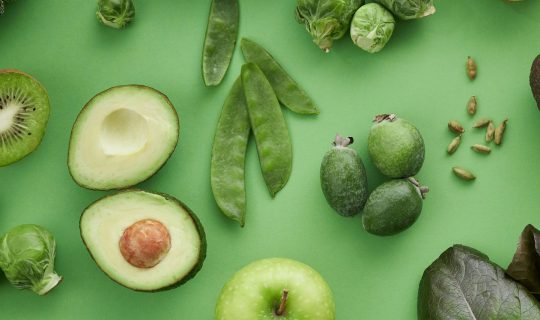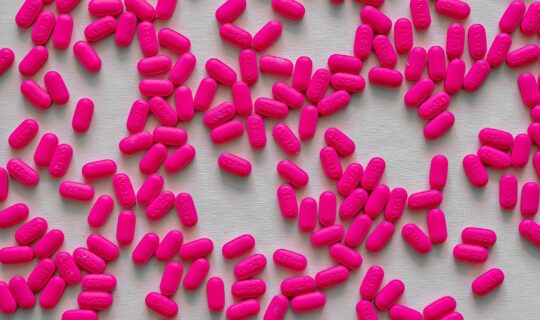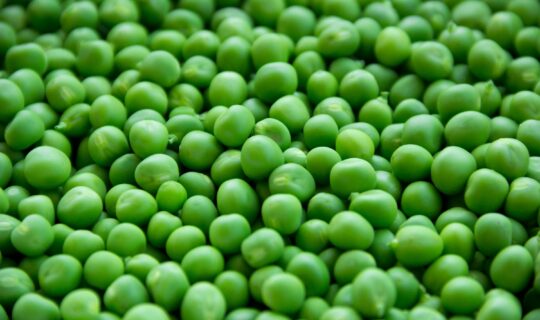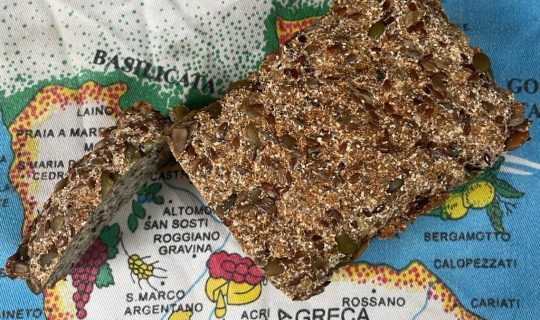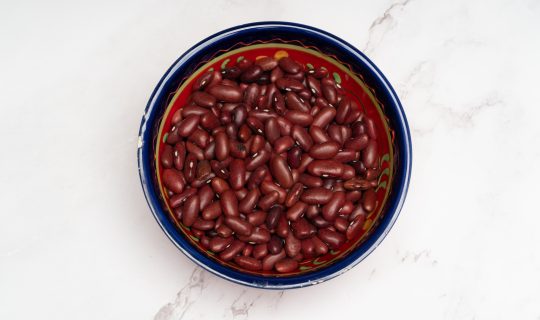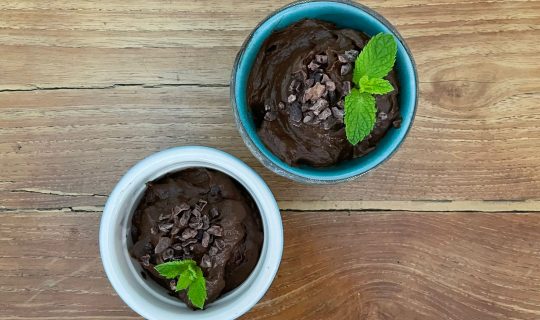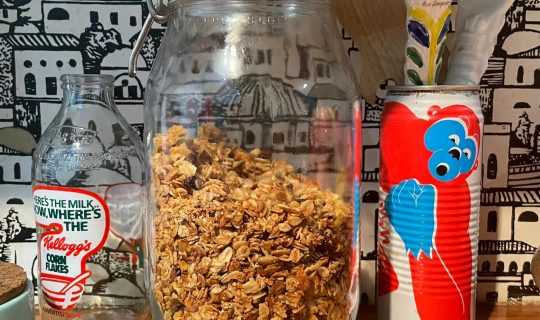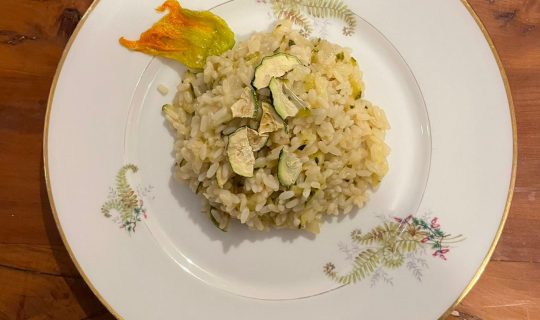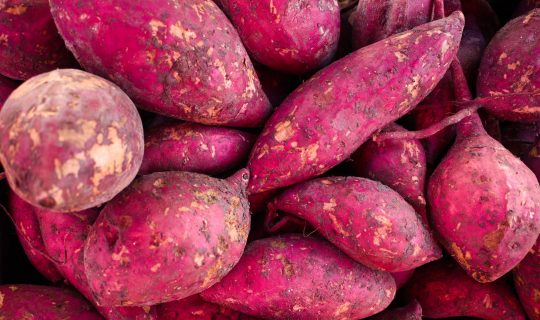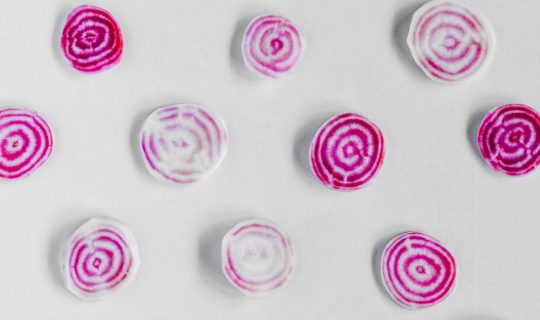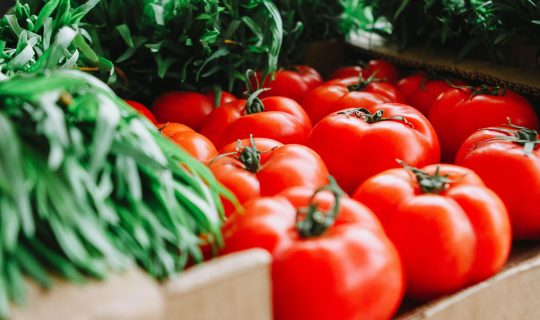Ozempic, Wegovy and other GLP-1 agonists — often referred to as weight loss jabs — have become almost impossible to ignore. They’re widely promoted for appetite control, weight loss and improved blood sugar regulation, and for many busy women they seem like a welcome shortcut when trying to lose some extra weight (not discussing here…
Let me start by saying something that might sound surprising coming from a nutritionist: weight loss is not the holy grail of health. Health is not a number on the scale, and body weight alone tells us very little about metabolic health, nutritional status, stress resilience, or long-term wellbeing. That said, I also recognise something…
For decades, nutrition advice has been built around population averages: recommended daily intakes, standard dietary guidelines and broad lifestyle recommendations designed to suit most people. While these guidelines are useful, they often fall short when individuals experience persistent symptoms, conflicting responses to food, or limited results despite doing “everything right”. This is where genetic testing…
If you’re struggling with unexplained symptoms like fatigue, flushing, bloating, rashes, anxiety, or food reactions, you may have come across MCAS (Mast Cell Activation Syndrome) and histamine intolerance. These two conditions can look almost identical on the surface — yet their underlying causes are quite different. Understanding this distinction is key to finding the right…
As an Italian nutritionist, I often hear the same questions: “Is pasta bad for me?”, “Why does pasta make me bloated?”, or “Should I avoid gluten completely?”. Pasta has been unfairly demonized in recent years, but the truth is simple: pasta, in moderation, is not harmful. The key lies in choosing the right type. Understanding…
This crisp, Spanish-style flatbread delivers a bright burst of freshness with every bite – it is something I grew up eating when in Mallorca, and something I can’t wait to enjoy when I travel back to my beloved island. The vegetable “trampó” , AKA pepper, tomato and onion salad, topping is rich in vitamin C,…
This revamped Courgette & Bean “Bean-otto” strikes the perfect balance between comfort and nourishment. Buckwheat introduces a gluten-free, protein-rich base, delivering complex carbohydrates, fibre, and essential minerals like magnesium. Combined with beans, you’re getting a powerful plant-based protein boost that’s also rich in gut-friendly fibre. The courgette and garlic bring along vitamins C and antioxidant…
Ozempic and similar medications—often called weight loss jabs—are gaining popularity for rapid results. These drugs, part of a class called GLP‑1 receptor agonists, were originally designed for type 2 diabetes. But as they became known for helping people shed significant weight, they’ve sparked a new wave of interest from non-diabetics eager to slim down. However,…
If you’ve ever typed “how can I lose weight?” or “best diet to lose weight” into a search engine, you’ve likely come across countless answers—some helpful, some downright confusing or wrong. As a qualified nutritionist, I want to help cut through the noise by addressing common food and weight loss myths that may be holding…
One question I often get asked is, “Can I use Zoe?” or “What do you think about Zoe?” While I believe that Zoe has done a great job raising awareness about the importance of gut health and how nutrition can be transformative to health, I also believe there are many flaws. One of the first…
When it comes to setting the tone for the day, a protein-rich breakfast can make all the difference. Starting your morning with enough protein doesn’t just keep you full longer — it also plays a critical role in stabilizing blood sugar levels, supporting energy, mood, and even weight management. Skipping protein at breakfast or choosing…
Diabetes management is one of the key areas of my practice, and I see many clients who are pre-diabetic and diabetic. While managing blood sugar levels is crucial for overall health, diet plays a fundamental role in this. While many people focus on what they should be eating, it’s just as important to understand what…
Endometriosis can be a complex disease impacting many aspects of a women’s life. While nutrition can’t cure or reverse the condition can certainty help managing the symptoms and improving the quality of life. What would be the best recommendation from my nutritional therapist and endometriosis suffer point of view? The nutrients below are backed up…
A incredibly luscious and decadent bean soup that will delight your guests! Warming and flavourful, but also great from a nutritional point of view as it is packed with fibre and micronutrients both from the beans and the kale. INGREDIENTS: 1 clove of garlic, thinly sliced 1 onion, thinly sliced 2 tbsp olive oil 2…
The soaring popularity of Ozempic, a medication designed to treat Type 2 diabetes, has sparked dangerous trends in its misuse. Known as Hollywood’s “skinny jab,” Ozempic has become a weight-loss sensation, leading to increased demand and widespread shortages. Unfortunately, this demand has also fueled a black market where unregulated semaglutide products are sold online or…
This is a great recipe for a delicious and easy to make starter – a typical Italian bake called “scarpaccia”. Scarpaccia is a crispy think bake made with courgettes, which can be served on its own or with dips; it is packed with fibre and micronutrients – a definitive upgrade from pitta bread! Courgettes, also…
Mast Cell Activation Syndrome (MCAS) is a condition in which the body’s mast cells—a type of white blood cell that plays a role in immune response—become overactive. When triggered, these cells release chemical mediators like histamines, which can lead to widespread inflammatory symptoms. Many people with MCAS experience histamine intolerance or sensitivity, which often exacerbates…
Looking for a healthy, plant-based main dish that’s packed with flavour and nutrition? This Whole Roasted Lemon Tahini Cauliflower is not only a show-stopper at the dinner table, but it’s also an excellent choice for anyone seeking a vegan, gluten-free option that delivers plenty of nutrients. Cauliflower is a versatile, nutrient-dense vegetable, rich in fibre,…
High testosterone levels in women can lead to weight gain, especially around the belly. This is common in conditions like polycystic ovary syndrome (PCOS), menopause, and from certain types of birth control. The key to managing this is balancing hormones and improving insulin resistance, which can be done through proper nutrition and supplements. Testosterone and…
What is Gluten? Gluten is a group of proteins found in certain grains, primarily wheat, barley, and rye. These proteins, known as gliadin and glutenin, are responsible for the elasticity of dough, helping it rise and maintain its shape. Gluten is what gives bread its chewy texture and helps it hold together. It’s not just…
In recent years, semaglutide, marketed under the name Ozempic among others, has gained attention as an effective treatment for type 2 diabetes and as a weight management aid. However, while its benefits can be significant, it is essential to understand how it works, the potential risks, and the dangers of obtaining it without medical supervision….
This dip is simply amazing! Is not only easy to make and really tasty, but also full of nutrients. Red peppers are a great source of vitamin c while walnuts are nutrition power houses, being rich in Omega-3s, which are crucial for heart health and brain function. The antioxidants and polyphenols in walnuts have been…
This is the best brownie recipe ever! Rich and deep chocolate taste, perfect texture and very easy to make. They are high in protein, gluten free and vegan – definitely a crowds pleaser! Black beans make them high in protein, so those brownies can be the ideal post-work out snack – definitely tastier and more…
Beans have become the darlings of the culinary world, flooding our social media feeds with appetising recipes, from hearty stews to desserts like black bean chocolate cake. With the rising awareness of environmental sustainability prompting many to seek plant-based protein sources, beans appear as a shining star on the dietary stage. Rich in protein, fibre,…
Endometriosis is a chronic condition that affects millions of women worldwide, and unfortunately is often misdyagnosed or its symptoms are dismissed. Despite its prevalence, there remains a significant gap in deeply understanding its causes and possible solutions beside strong painkillers and/or surgery. The Causes of Endometriosis Endometriosis is characterized by the presence of endometrial-like tissue…
Menopause is a natural phase marking the end of a woman’s reproductive years, typically occurring between the ages of 45 and 55. This transitional period brings about various physiological changes, including alterations in blood sugar levels and increased risk of insulin resistance. As women journey through peri- and post-menopause, understanding these changes and adopting a…
Let’s talk about two nutritional superheroes that deserve the spotlight: Tahini and Cauliflower! Tahini, made from ground sesame seeds, is not just a tasty addition to your dishes, but it’s also packed with essential nutrients! Rich in healthy fats, tahini provides a good source of plant-based protein and is loaded with minerals like calcium, iron,…
This a great recipe to make a super tasty taco/burrito filling that is not just beans! Tomato sauce is a key ingredient in this dish – a great source of anti-inflammatory antioxidants including lycopene. Lycopene ability to protect cells from oxidative stress makes it valuable in maintaining the health of tissues and organs and this…
I love my job and have chosen to be a nutritional therapist as I love food too much! I follow a healthy diet without depriving myself of my favourite treats and not just eating steamed vegetables and salads on repeat! Many people who don’t know me well are surprised when they see me eating a…
Polycystic Ovary Syndrome (PCOS) is a complex endocrine disorder that affects a significant number of women worldwide. Beyond its well-known impact on reproductive health, PCOS has been associated with various metabolic and hormonal imbalances. One such imbalance that has gained attention in recent research is the elevation of estrogen levels in individuals with PCOS and…
This is a great side dish, easy to make and absolutely flavourful. Miso, the heart of this dish, brings more than just its umami richness; Bursting with probiotics, essential B-vitamins, and vital minerals, miso contributes to gut health and energy metabolism. Aubergines are a great source of fibre and antioxidants, but be mindful if following…
This gorgeous dish is the ultimate winter comfort meal! Quick and easy to make it packs plenty of nutrients, is gluten free and high in protein. Tahini, a paste made from ground sesame seeds, is the star of this dish! Tahini is a notable source of minerals such as magnesium, phosphorus, iron, and calcium. These…
Chickpeas in tomato sauce is a delectable harmony of hearty legumes and vibrant flavors. In this comforting dish, chickpeas, those versatile gems, intertwine with a rich, velvety tomato sauce. Cooking different legumes in tomato sauce as an alternative to tinned baked beans works! Conventional baked beans can have a very high sugar content and are…
Many clients tell me they don’t eat sugar but instead have a good squeeze of honey/agave or maple syrup in their morning porridge or in their tea…it is natural, healthier, and better right? The news is…chemically they are exactly the same! Let’s start from the beginning – what is table sugar? Table sugar is obtained…
This is a super quick and easy recipe to make your own low carb/ketogenic bread in less than 10 minutes! It can be a great option if you are trying to avoid gluten, as well as if you are on a low GI diet. This is a savoury option, but if instead of adding seeds…
Recently, there has been a lot of conversation around menopause, peri-menopause and how to navigate and support this transition with the help of nutrients and lifestyle habits. But what about men? Did you know that also men go through a similar transition? It is called andropause and refers to the hormonal changes in men, consisting…
The hero cake that most of us baked when kids or during lockdown! It is easy and quick and while as a nutritionist I won’t suggest to make it daily treat, I would say go for it for a special celebration or once in a while treat 🙂 INGREDIENTS 4 ripe bananas, mashed 1/3 cup…
Gazpacho is a versatile soup, perfect for the summer heat! Made with fresh vegetables and olive oil is an antioxidant and electrolyte powerhouse! Tomatoes are one of the richest sources of lycopene, a powerful antioxidant which can protect the skin from UV damage; Peppers are rich in vitamin C and olive oil is a great…
As the scorching sun beats upon us during this heat wave, our bodies require more than just a cool breeze to cool down.Enter electrolytes – the unsung heroes that offer crucial support for our bodies during these warm days. In this article, I’ll explain what electrolytes are, their impact on our health and how to…
This is a hot topic – often not really understood and dismissed. I see many clients with symptoms such as brain fog, mood swings, low energy, altered gut health, trouble sleeping and managing weight. Despite all these changes that have a real impact on day-to-day life, many women just carry on, forgetting what it was…
INGREDIENTS 1 onions, diced 3 tbsp olive oil 2 garlic cloves, squashed 2 tbsp tomato puree 2 diced peppers 1 handful of kale 1 x 400g tins of tomatoes 750ml of veg stock 1 x 400g tin black beans, drained & rinsed 1 x 400g tin lentils, drained & rinsed sea salt & pepper a…
Easter is here, and so chocolate is everywhere! There is plenty of information in media saying chocolate is good for you and that it can be considered a superfood; this information can be in conflict with what you have always thought about (chocolate is highly calorific, too much can give you spots, is a “junk”…
Springtime is almost here and with it allergic reactions due to hay fever. Can nutrition help manage how much you are affected by it? Definitely! While nutrition and supplements can’t cure allergy, and I recommend following medical advice for severe allergic reactions, some dietary changes can help you balance your immune system and possibly dim…
This soup is unbelievably easy and quick to make and is also super tasty! Rich in protein and fibre this soup is made with seasonal ingredients, make it also a convenient option in these times of imported vegetables shortages. I always advocate using in season produce as those are likely to be grown locally and…
When seeing my clients, I always ask them to describe or show me their nails – and I know I am not the only therapist doing that. Ever wondered why? The reason is that nails (shape, colour, quality) can give indications and clues about general health status, providing an extra tool to spot possible unbalances…
INGREDIENTS 3 tbsp olive oil 1 large onion, finely chopped 2 carrots, finely chopped 3 celery sticks, finely chopped 500g bag dried red lentils, soaked overnight in cold water 2 x 400g cans chopped tomatoes 3 bay leaves 1 tea spoon of sugar Salt ½ l vegetable stock METHOD 1. Heat the oil in a…
This great nut roast recipe is a total people’s pleaser – plant-based dieters and not have always loved this roast when I have served it for a Sunday lunch! The star of the show in this roast is pumpkin – one of my favourite vegetables! Pumpkins are a great source of fibre, antioxidant beta-carotene as…
There is so much advice about the best diet to manage type2 diabetes, spacing from low carbohydrate, ketogenic and low glycaemic diet…but which one is the best? First of all, let’s understand what those diets are: Low carbohydrate diet: there are no set rules for what a “low carb” diet is, but most professionals agree…
We are surrounded by sweets and sugary treats – it is very hard to resist! Whilst I believe enjoying the occasional treat during the festive season is healthy and won’t hinder your diet, continuous sugar cravings and intake of sweets will. Tired of being in a never ending roller-coaster of sugar highs and sugar lows,…
When diagnosed with diabetes one of the first dietary interventions suggested is to limit foods high in simple sugars – biscuits, soft drinks, sweets… This could represent a drastic change of diet, and patients can be tempted by the “sugar-free” version of those same foods..no sugar, no harm, right? Is not that simple. There is…
Romanesco cauliflower is definitely an interesting looking vegetable! First documented in Italy in the 16th century is characterised by a “spiky” look and bright green or live yellow colour. Similar to cauliflower in nutritional value, it has a nuttier but more delicate flavour. Cauliflowers are part of the cruciferous family, which includes broccoli, kale, chards,…
Diabetes is a complex condition involving multiple body systems, including the gut and the gut barrier function. Helping diabetic patients with a personalised nutrition plan shouldn’t focus exclusively on foods’ glycaemic index, but also on gut health and specifically on the gut barrier’s health. Recent studies have found a strong correlation between diabetes (both type1…
I am a firm believer in introducing more and more plant-based foods into diets. This won’t only be beneficial for the planet but also for our health. As a nutritional therapist, my role is not to “convince” clients to go vegan or vegetarian but to balance their diet and suggest changes to achieve health goals….
This is one of the best dessert recipes ever – it tastes delicious and is packed with antioxidants and healthy fats! Is also very easy and quick to make. Avocado is a great source of healthy fats and vitamin E, whilst cocoa powder is rich in antioxidants and polyphenols that will keep their properties as…
Who doesn’t love granola?!? The problem with supermarket bought ones is the quantity of sugar and inflammatory oils, as well as the lack of nuts. Health store granolas are much better, but they are cheap. Good news – making your own granola is very easy and cheap, and will allow you to costumise it your…
Is September and we are all looking for a health kick and plenty of energy for the return to school or work. The first thought would be to head to health store and start piling on vitamins, supplements and superfoods – but what will be the costs of it?!? Supplementation without a real need, such…
Risotto holds a special place in my heart as is the typical dish from my hometown – Milan. The ultimate comfort food, ideal for autumn and winter evening when fancying a nourishing dish. Rice is a gluten free grain, so risotto is ideal to celiac and gluten sensitive people. This recipe is vegetarian, but can…
Back from holiday and already in need of another break? In order to produce energy our body needs essential nutrients from its main fuel – the food we eat! B vitamins are involved in energy production, helping nutrients being converted into energy at a cellular level. B vitamins are water soluble, meaning our body has…
Let’s talk about intermittent fasting, not the newest diet craze but one still going strong. With intermitted fasting is meant voluntary restriction of the eating window time, which most of the times translates in delaying or skipping breakfast. When reading about it on media or internet various sources say it could be beneficial to improve…
This simple recipe is packed with nutrients: peas are full of protein, fibre, iron and potassium – a key mineral for cardiovascular health. Like all legumes, peas are very satiating and provide a “second meal effect” as they help stabilising blood sugar level after eating them, and until the meal after. Extra virgin olive oil…
This recipe is one of my favourites of all time…aubergines, tomato sauce, legumes – what’s not to like? A vegetarian (can also be make vegan) variation of meat stuffed aubergines, a typical Balearic dish specifically from Menorca where, supposedly, the best aubergines in the world are from. Easy and very cheap to make this dish…
Many would have heard about the gut-brain axis, meaning how the gut microbiota can impact our neurotransmitters production and mental health. This is not the only existing axis, there is also the gut-skin axis, meaning how our gut microbiota can impact our skin health. In my practice I work with many eczema patients and find many times that…
Who doesn’t love a burger? This is a very easy recipe to prepare your own vegan burgers, saving money and avoiding the ultra-processed vegan burgers that are now populating supermarket shelves. That was my main concern: I used to find bean-based burgers quite easily in supermarket, while nowadays most are make of ultra-processed soy and…
When talking about nutrition, budget is a significant barrier – many people think a healthy diet must be expensive, but this is very far from the truth! While you might think that to lead a healthy lifestyle, you should shop only at Wholefoods, but actually this is not true. Below are the top tips I…
This is a very easy and quick recipe, ideal for the hot weather when we need to up our fluid intake also via foods. Cucumber are rich in water and minerals, which are essential to keep us hydrated in this heat. Electrolyte minerals such as calcium, potassium, sodium are key to proper hydration,…
Summertime is here and so many lovely produce associated with the Mediterranean diet are in season. With Mediterranean diet is mean the traditional way of eating typical of Southern European regions such as Greece, Spain, Italy, the Balkans and Northern Africa. The traditional Mediterranean diet pyramid image we see in different media dates back from…
13th – 19th June is diabetes awareness week! One of the first questions diabetic patients ask is “which kind of food should a diabetic avoid?”. In my practice I’d like more to think about the foods you should include or should swap, without proposing a rigid dietary regime full of “don’t”. The main foods I…
I get asked so many times: what do you eat as a nutritionist? Good question! What I always say is that a way of eating that works for me, won’t necessarily be the best for somebody else – we are all unique individuals and so has to be our diet. It took me time to…
This vegan delicious dessert is packed with antioxidants carotenoids from the sweet potatoes, and quercetin from cacao powder and nibs. Antioxidants are essential to fight free radical and consequently lower inflammation. Studies pointed that cinnamon can help lower blood glucose levels, something useful if trying to modulate them but still wanting to have a dessert….
You might have heard before of low FODMAP diet, but you might not be sure what exactly it is. FODMAP is short for fermentable oligo-, di-, and monosaccharide and polyols, which are short chain carbohydrates that can excessively ferment in the small intestine. Those compounds can be found in certain vegetables, fruits, fresh dairy, legumes…
An exciting new area of research is beginning to uncover the fascinating link between our brain and gut and the impact diet can have on our mental health and mood. Welcome to the concept of gut-brain axis. The gut-brain axis is a bidirectional communication system, linking emotional and cognitive centres of the brain with our…
The start of a new year often equals new goals to reach, and in 2019 losing weight was one for 44% of the UK population, the second most common new year resolution after increase exercise (47%). How to successfully reach and maintain a healthy weight for your body type and height? There is no unique…
January is love your liver month, an initiative organised by the British Liver Trust. The liver is the biggest organ in our body, using up to 27% of our resting metabolism and filtering 1.4 liters of blood per minute. The liver is involved in hundreds of essential body functions the most important being: – Fighting…
As the new year starts many people decide to embark in a new with the goal of losing weight. The first idea that springs to mind is to limit calories and start doing calorie counting – there are flaws in this approach to diet, mainly because the calorie system is flawed. A calorie is a…
Who doesn’t love a Saturday Chinese take-away?!? I love a cheeky take-away, but I don’t like MSG, greasy pieces of meat and a very salt heavy meal. This sweet and sour chicken is sticky and incredibly tasty, and because one of the main ingredients is turmeric is also protective for your cardiovascular system, anti-inflammatory and…
Beetroots are part of the same family of spinach and chards, and can come in a variety of colours: red, white, yellow. Also leaves are edible and taste almost like spinach– in younger plants can be eaten raw, while more mature ones are better cooked. Nutritional value Beetroots consist mainly of water (87%) and are…
Technically a carbohydrate, fibre is the part of food derived from plants resistant to human digestion and absorption. Fibre is needed to maintain a healthy digestive system supporting regular bowel movements, decreasing the time of intestinal transit, lowering cholesterol and glyceemic levels, trapping substances that can be dangerous for the human organism (mutagenic and carcinogenic…
If you have been diagnosed with diabetes or pre-diabetes you might be familiar with the concept of GI (glycaemic index). GI ranks foods on how fast are digested into sugars and how quickly it impacts blood glucose levels, but it does not reflect the portion size. The GL (Glycaemic load) combines both the quantity and…
Red cabbage is part of the brassica family, same as broccoli, kale and sprouts. Brassica vegetables are rich in antioxidants, can support liver detoxification, hormonal balance and add fibre to diet. Is important to notice that raw brassica can be goitrogens, meaning they can interfere with thyroid hormone production by slowing iodine uptake by the…
One of the root causes of clogged and problematic skin is an excess of toxins which can overwhelm two of our primary detoxification organs: the liver and kidneys. If this is the case, extra toxins will be eliminated via our largest detoxification organ, the skin. The skin can easily become overwhelmed, resulting in eczema, impurities,…
Today is national cheese toastie day! 🙂 A yummy treat to have occasionally, but not a nutritionally complete one as it lacks fiber, many vitamins and is high in saturated fat. How to improve its nutritional value? *Try to use whole grain instead of white bread for extra fiber. Fiber is essential for gut health…
This luscious curry screams holiday in the sun and will transport you to Sri Lanka in less than the 30 minutes that takes to cook it. Chickpeas, like most legumes, are rich in proteins and essential in vegan and vegetarian diets. The high fiber content is not only beneficial for gut health, but alongside the…
What is caffeine? Caffeine is a naturally occurring chemical compound found in plant constituents such as coffee and cocoa beans, tea leaves, guarana berries, and the kola nut, and has a long history of human consumption for its famously stimulating effects. Today, 80% of the world’s population consumes a caffeinated product each day, and…
Spinach originated in Persia to then be traded with China and finally came to Europe in the 13th century. Is part of the amaranth family, so is related to beets and quinoa. There are three main categories of spinach: the savoy which has wrinkled leaves, the sami-savoy (not as wrinkly) and the flat leaf spinach…
Extra virgin olive oil is a staple in the Mediterranean diet and is recommended as part of a healthy diet, but do you know why? Despite being pure fat, it is mainly composed of monounsaturated fat (MUFAs) oleic acid which helps reducing blood levels of “bad” LDL cholesterol whilst maintaining levels of “good” HDL one….
Technically a fruit, butternut squash like many colourful vegetables/fruits is rich in antioxidants and vitamins. Native to the Americas, like pumpkins and courgettes, is a member of the cucurbitaceae family. Nutritional value A 100gr can provide 228% of your recommended daily intake of vitamin A in form of carotenoids (beta and alpha carotene and beta-cryptoxanthin)…
This is the perfect dinner for when you are stressed and running out of time: nutritious, tasty and full of sources of magnesium, melatonin, B6 and tryptophan – all compounds that can help relaxation and good sleep. The high content of antioxidants will also help the body repair itself when going through extreme stress. Black…
Part of the nightshade family, tomatoes are a fruit even though they are usually considered and consumed like a vegetable. Believe it or not, there are around a staggering 10.000 varieties of tomatoes, varying in colour (red, green, purple, yellow) shape, size, and geographical distribution. Some of the best known and well-loved are cherry tomatoes,…



